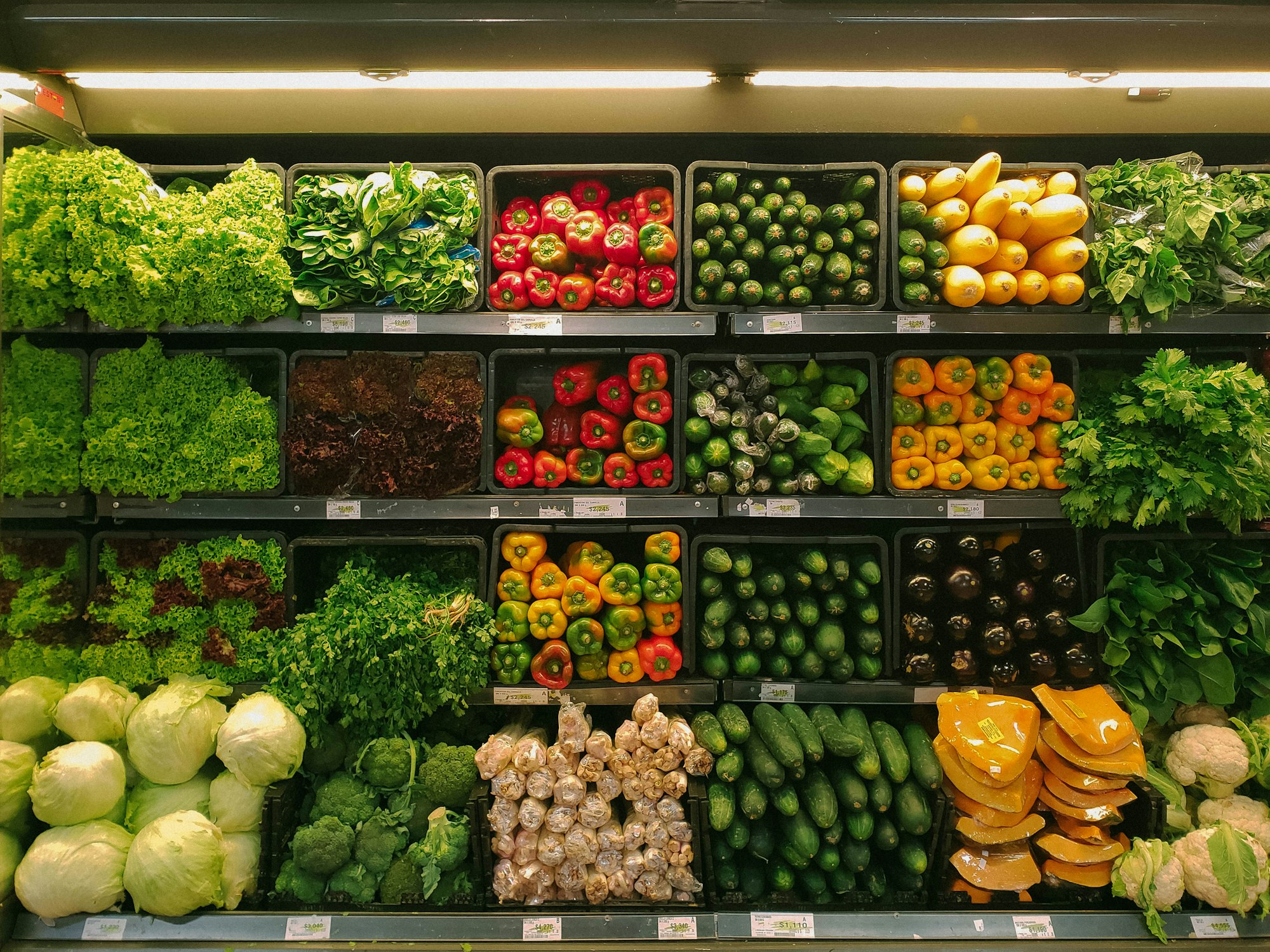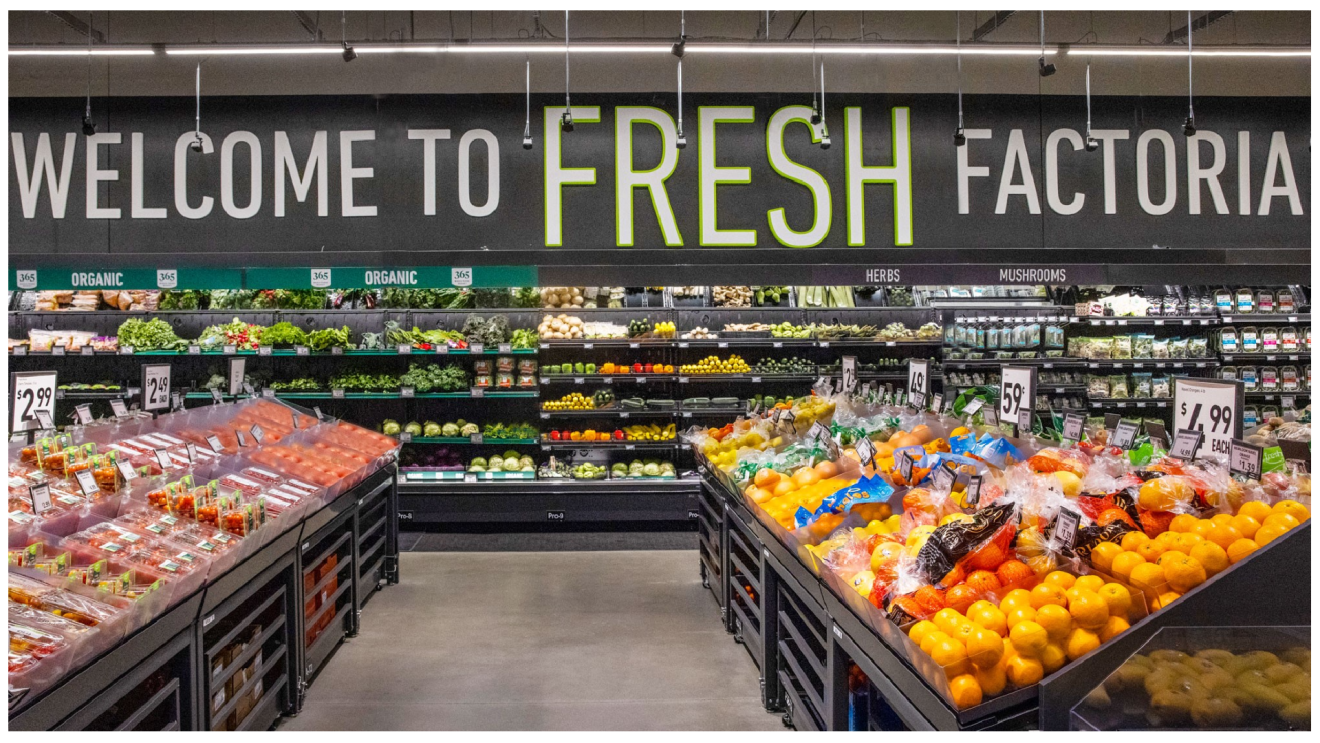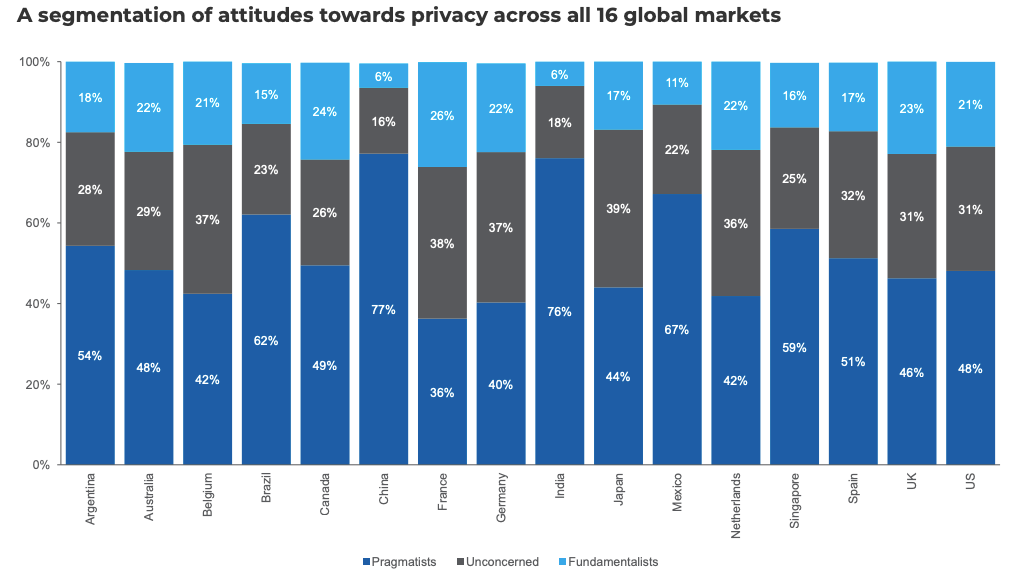Amazon's In-Store Ads, Data Pragmatists, Social Media Addiction Bill

Fresh: Amazon Taking Ads into Stores
Last year we found out that Amazon's ad business is worth $31 billion. For context, that's 8X larger than Snap and ~7X larger than Twitter. Also, that's "roughly the same size as Google Display, YouTube, or the entire global newspaper industry’s ad business." Amazon is the third largest ad platform after Google and Facebook. Now the company is planning take ads offline into Fresh grocery stores. According to reports the company plans brand ads on digital signage in stores, on smart shopping carts, in checkout areas and on digital refrigerator case screens. Amazon would also offer detailed reporting. The company would be in a position to potentially connect impressions with sales.

Our take:
- Retail media generally in the US are projected to be worth more than $40 billion this year. In-store grocery advertising is a much smaller market.
- Amazon's move can be seen in the larger context of the growth of digital OOH, with its corresponding targeting and analytics capabilities.
- Prime membership (QR code scanning), in-store check-in (JWO) and sensors could link ad exposures to individual purchases.
Survey: Most Consumers 'Data Pragmatists'
Over the past decade privacy has become a major digital battleground. Beyond GDPR and CCPA, the market trend is toward more privacy controls for users. Indeed, privacy has become smart marketing (i.e., Apple App Tracking Transparency). Recent privacy moves by major browsers and platforms (end of cookies, ATT) have put some company revenues at risk. A new survey from the Global Data and Marketing Alliance (GDMA) seeks to push back on the pro-privacy narrative. Its 2022 survey finds 53% of global users are "Data Pragmatists," who will trade personal information for clear benefits. It contends that only 18% won't share data at all, while 29% don't care about privacy. The study concludes that "overall levels of concern have been in decline since 2018." The data say what they say, but there's definitely some spin going on.

Our take:
- Consumers have always been willing to give up some data for discounts and rewards (i.e., pragmatism). This has remained consistent over time.
- It's false however to say consumer privacy concerns are in overall decline. If anything the opposite is true. Users are more distrustful/skeptical than ever.
- Trust, transparency and ethical behavior can reconcile consumer privacy concerns and marketers' needs. But ethical behavior is in short supply.
Social Addiction: Should Parents Be Able to Sue?
A new California bill (.pdf) – the "Social Media Platform Duty to Children Act" – wants to protect children from "social media addiction." The bill is a response to social media's purportedly manipulative engagement tactics. These tactics were detailed in the recent Netflix documentary The Social Dilemma. Social media sites (e.g., Instagram) are also accused of willfully ignoring internal data showing their products harm kids. Facebook whistleblower Frances Haugen discussed this at some length. The bill, aimed mainly at Facebook/Instagram and TikTok, argues profit motivates the manipulation: more time on the app equals more revenue. The bill creates a duty not to addict kids and to change features that promote addiction. Damages could be $1K per child in a class-action, or $25K in civil penalties per child per year. Companies under $100M revenue are exempt.

Our take:
- Assuming the bill passes (not given), it appears to conflict with Section 230's liability exemption. That's not a slam-dunk defense however.
- Multiple studies support the notion that social media is destructive of teen mental health. Other experts argue the research is inconclusive.
- Protecting kids is good. This bill is problematic; it could require dramatic feature/algorithm changes -- or platforms could simply exclude kids.
Recent Analysis
- Google Increasingly Showing Product Images in Local Packs, by Mike Blumenthal.
- Near Memo episode 56: Google goes local with product search; FTC: HomeAdvisor cheated SMBs; SMBs are "sales averse."
Short Takes
- Most Featured Snippets come from positions 1-3.
- Visably measures brand reach in SERPs beyond rankings.
- Google Maps introduces Last Mile Fleet Solution for delivery companies.
- Irish regulator sued for not taking action on Google "data breach."
- New EU law would break Apple's "app store monopoly" (WSJ).
- US DOJ releases guidance on website accessibility standards.
- Measurement company Nielsen rejects PE $15 billion offer.
- Substack's new app potentially puts it at odds with writers.
- Shift becomes "the Amazon of the used car marketplace."
- Post-password future inches closer to reality.
- Crypto war: Ukraine funding war effort with NFTs.
- Crypto at SXSW: "Underwhelming, mundane, pathetic."
- Checking in with Second Life, the original metaverse.
- An effort to enable people to smell in virtual reality.
- At most SMBs the business owner is the primary SaaS researcher.
Listen to our latest podcast.

How can we make this better? Email us with suggestions and recommendations.

